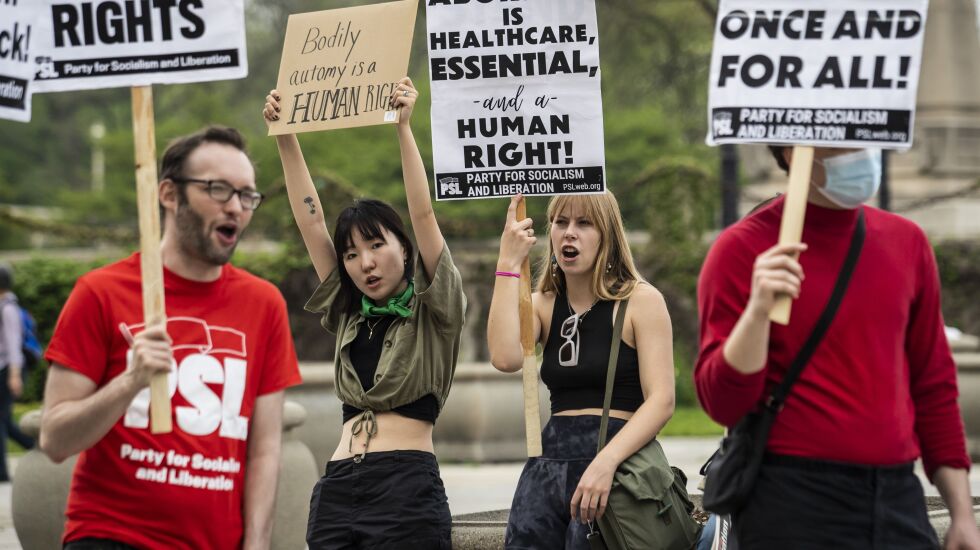
Is it still legal to get an abortion in Illinois now that the U.S. Supreme Court has issued its ruling in Dobbs v. Jackson Women’s Health Organization?
Yes. Abortion rights activists have worked hard in recent years to ensure that state law explicitly protects access to abortions in Illinois. In 2017, they successfully lobbied the Legislature to throw out a “trigger law” that would have reinstated a ban on abortions automatically if the Supreme Court rolled back Roe vs. Wade.
In 2019, Gov. J.B. Pritzker signed the Illinois Reproductive Rights bill, which enshrined abortion as a fundamental health care right, required insurers in Illinois to cover abortion procedures, and generally regulated abortion as it would any medical procedure.
Last year, the state repealed a law requiring notification of parents when a minor seeks an abortion.
“The hard work was already done in Illinois,” said Brigid Leahy, director of government relations for Planned Parenthood Illinois. “We have the Reproductive Health Act in Illinois ensuring access to care, and that abortion in Illinois is not only legal but also accessible.”
What’s next? Will it be harder to receive an abortion in Illinois?
Possibly, but not because of changes to the law here.
Clinics that provide abortion care across the state expect an influx of women from surrounding states. All of the adjacent states — Indiana, Wisconsin, Missouri and Iowa — are poised to ban or dramatically curtail abortion access. Across the United States, legal experts expect as many as 26 states to ban abortions after the Supreme Court ruling.
Planned Parenthood of Illinois anticipates that as many as 30,000 additional patients will come to Illinois for abortions — roughly triple the number in 2020. There were 46,000 abortions performed in Illinois in 2020, the most recent year for which the state Department of Health has statistics.
Planned Parenthood has anticipated other states’ expanded restrictions on abortion for years and has opened new sites in south suburban Flossmoor and north suburban Waukegan to serve women coming from Indiana and Wisconsin, respectively.
Will there be any impact on services that reproductive health care providers can offer?
Within the state, the services offered — including abortion— will remain the same.
But services that abortion providers have recently expanded might face new regulation. Planned Parenthood has created a “telehealth” option that connects women seeking abortions to a medical professional via online video conference.
Patients who can log in from inside Illinois’ borders can schedule a relatively brief online appointment, and a doctor can prescribe medication that will end their pregnancy, pills that the organization will mail to any address in Illinois. Medication abortions accounted for the majority of abortions performed in recent years, but Planned Parenthood’s Leahy said the option may be one of many that soon will be targeted by legislatures in other states.
“It’s not enough for them to have the ban in their own states,” she said. “We’re already hearing about anti-abortion legislators trying to figure out how to reach across their borders and prevent abortions in other states.”
Are abortion laws in Illinois likely to become more restrictive?
It does not seem so. In addition to the abortion rights legislation that passed in 2017, 2019 and last year, the state legislature appears likely to maintain a strong Democratic majority, even in what many expect to be a down year for the party in the November elections. Polling shows that support for abortion rights among Democrats has increased since a draft ruling of the Supreme Court decision leaked in May.
Pritzker has made his support of abortion rights a centerpiece of his campaign in recent weeks, while the candidates in the Republican primary have announced themselves as “pro-life” with varying degrees of fervency.







